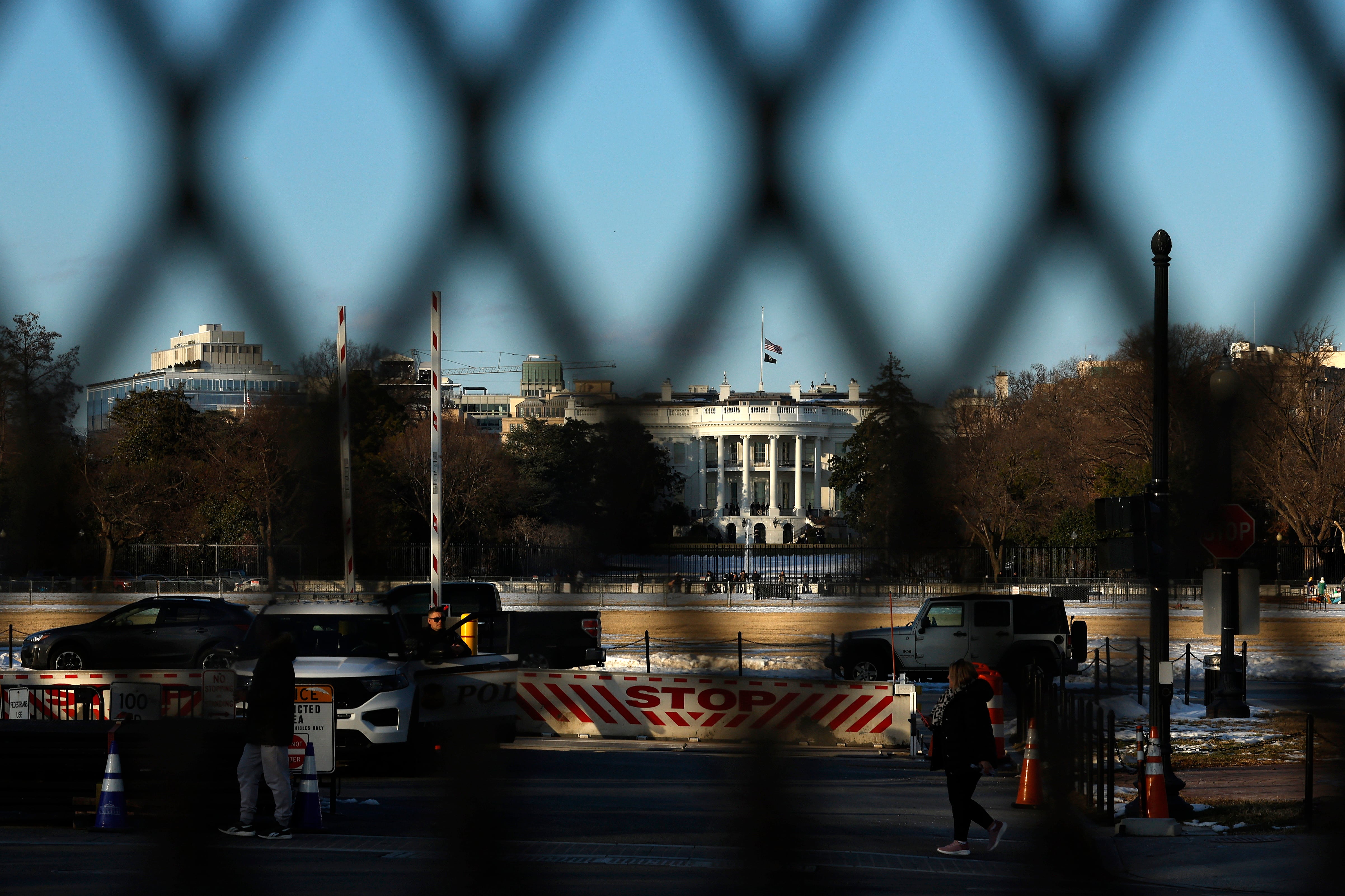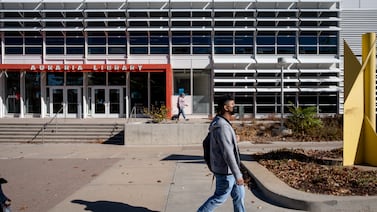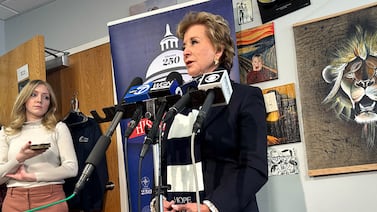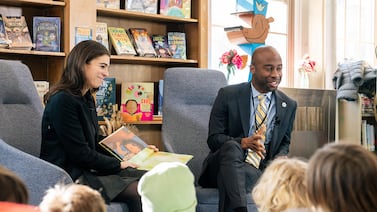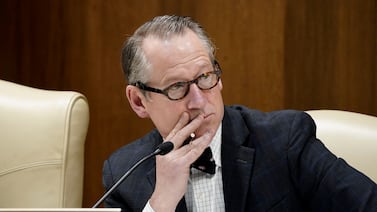Sign up for Chalkbeat’s free weekly newsletter to keep up with how education is changing across the U.S.
Beyond the pomp and circumstance, a presidential inauguration can provide many teaching moments about democracy and the transfer of power.
Donald Trump’s first inauguration was marked by counterprotests and a Women’s March that drew hundreds of thousands of opponents to Washington, D.C. This year, local officials report more interest in tickets to the inauguration itself and fewer applications for protest permits. What could that shift show students about American politics?
Chalkbeat spoke with Emma Humphries, chief education officer at the civics education advocacy group iCivics, about why teachers should teach the inauguration and what lessons this national event contains. iCivics provides teaching resources, games, and support for teachers who want to incorporate the inauguration, the presidential transition, and many other civics topics into their classroom lessons.
During the 2000 election, Humphries was a high school student in South Florida, near the epicenter of the vote count controversy. Her teachers made lots of space to talk about it in school.
“It wasn’t so fraught that [teachers] had to shy away from it,” said Humphries, now a self-described “civics nerd.” “School was a safe place to ask, ‘What’s going to happen?’”
But today, Humphries said she has heard from many teachers who are not planning to teach the inauguration. And this year, they have a handy excuse in that most schools will be closed during Monday’s inauguration in observance of Martin Luther King Jr. Day, a federal holiday.
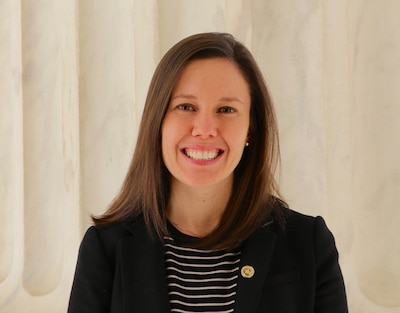
That’s a loss for students, Humphries said, because they don’t get to engage with different points of view, don’t get the sense of historical context, and don’t get to hear teachers — at least the ones who feel comfortable doing so — use the inauguration to provide “a sense of security and stability in a very fraught world.” Teachers can use such events, she said, to show that while America has been through trauma and controversy, it has endured.
“You’re missing out on what should be sort of a shared national event,” she said. “I think it’s sad when kids aren’t being brought to the table for those things.”
This conversation has been lightly edited for length and clarity.
You were a classroom teacher for many years before joining iCivics. Did you teach the inauguration?
I would let my administration know ahead of time that I was planning to do this and what my goals were and sometimes communicate with parents. The way I would justify it — and not that I got pushback, but I felt the need to justify it — is this is a historical moment. I tried to really keep the focus on the office of the presidency. And so regardless of the person, this is about the office of the presidency and their inauguration is a really big deal.
Where do you think that need to justify it came from?
If you’re in a really blue community and a red president is taking office, there might be pushback, and vice versa. It should just be: It’s the inauguration. It’s a big deal in our political calendar.
And even more so if you’re in a purple community, a pluralistic community, I think that’s where you’re seeing the most hesitation from educators. When it comes to the teaching of anything political or controversial, it’s those politically heterogeneous communities where teachers have the hardest time, because there’s tension in the classroom, there’s tension in the school building, and in the community at large.
When you do have communities where you have students that feel really differently about what this means for our country and what it may mean for themselves personally, what advice do you have for teachers on how to navigate that?
What I’m hearing more than anything is that teachers are not covering it. I think a lot of them are relieved that it’s a federal holiday, and so it gives them an excuse to not cover it. And then for the AP Government teachers who really feel like they have to, it’s a homework assignment.
Does that feel like a loss to you?
Absolutely, and it transcends inauguration. I consider it educational malpractice to not teach about an election during your presidential election year, but at the same time I get it.
I pulled this quote from an AP Government teacher [from a social media group for educators]. This teacher said, “I’ll be honest, we’re in the midst of a semester transition at this point. So there’s my excuse. But I’m avoiding the topic because I’d like to keep teaching for another eight and a half years. Feels like this year is a trap if you are from a district as 50/50 polarized as mine.”
What are students not getting when they don’t discuss it together as a class, or if the teacher just passes over it?
It’s making it easier for [students] to sort of pick a camp and stay in it. It’s not teaching them how to engage across differences, to understand how the other side might view things, how to understand that two things can be true at once, in terms of your beliefs and someone else’s beliefs.
Something we say a lot about civics is that the classroom is the laboratory for democracy. The same way you learn science in a science lab, you learn about civics and democracy in a social studies class. And if we’re removing the controversy, we’re removing the current, we’re removing the relevancy, then we’re removing the opportunity for students to really engage across differences. They’re not getting that practice.
When you would have students watch an inauguration, what would you ask them to look for? What are the learning opportunities there?
One is just who do you see and who are they? And kids will get excited about pointing out the political figures across the aisle. I would encourage them to look for folks, Democrats and Republicans, look for the symbols of American democracy, the flag, the military presence.
But my favorite thing to do is language analysis. What are the themes you’re gathering and what is the tone? Does it feel optimistic? Does it feel scary and foreboding? You’re not telling the kids how to think about what the person is saying. You’re trying to get them to really hear what the person is saying.
And if nothing else, go to history. If the current feels too fraught and too scary, then lean into the history and go back to other examples where there was just as much tension in the country, just as much polarization, and we still saw this peaceful transfer of power.
Erica Meltzer is Chalkbeat’s national editor based in Colorado. Contact Erica at emeltzer@chalkbeat.org.

